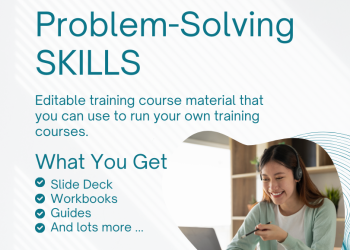Competency-based learning is an innovative approach to education that focuses on the mastery of specific skills and knowledge rather than traditional time-based measures.
This guide aims to provide a comprehensive overview of competency-based learning, including its definition, importance, key benefits, features, theory, and examples.
Definition:
Competency-based learning is an educational framework that emphasizes acquiring specific skills, knowledge, and abilities required to perform tasks or solve problems effectively.
It shifts the focus from seat time to skill mastery, allowing learners to progress at their own pace and demonstrate their understanding through assessments and real-world applications.
Why Competency-Based Learning is Important:
- Personalized Learning: Competency-based learning allows learners to progress at their own pace, ensuring they have a solid understanding of each concept before moving on. This customized approach promotes deeper learning and reduces the risk of knowledge gaps.
- Relevant and Practical Skills: By focusing on specific competencies, competency-based learning ensures that learners acquire the skills and knowledge directly applicable to real-world situations. This prepares them for career success and fosters a sense of relevance and purpose in their education.
- Flexibility and Adaptability: Competency-based learning provides flexibility regarding time, location, and learning pathways. Learners can choose the most suitable resources, methods, and assessments to meet their needs, allowing for a more personalized and engaging learning experience.
Key Benefits of Competency-Based Learning:
- Mastery-Based Progression: Learners can advance to the next level only after demonstrating mastery of the required competencies. This ensures a solid foundation of knowledge and skills before moving on to more complex concepts.
- Individualized Instruction: Competency-based learning allows educators to tailor instruction to meet each learner’s needs. This personalized approach enhances engagement, motivation, and overall learning outcomes.
- Real-World Application: Competency-based learning emphasizes the practical application of knowledge and skills. Learners are encouraged to apply what they have learned in authentic, real-world contexts, preparing them for success in their future careers and within virtual facilitation situations.
Features of Competency-Based Learning:
- Clear Learning Outcomes: Competencies are clearly defined, outlining the specific skills, knowledge, and abilities learners are expected to acquire.
- Flexible Learning Pathways: Learners can choose their learning resources, methods, and assessments based on their needs and preferences.
- Ongoing Assessment: Competency-based learning relies on continuous assessment to measure learners’ progress and mastery of competencies. This assessment can take various forms, such as projects, portfolios, presentations, or performance-based tasks.
The theory behind Competency-Based Learning:
Competency-based learning draws on several educational theories, including constructivism, behaviorism, and cognitivism.
It recognizes that learners construct knowledge through active engagement, practice, and reflection.
Competency-based learning promotes more profound understanding and long-term retention by providing opportunities for learners to apply their knowledge in authentic contexts.
Examples of Competency-Based Learning:
- Project-Based Learning: In this approach, learners work on real-world projects that require the application of specific competencies. They collaborate, research, and present their findings, demonstrating mastery of the skills necessary.
- Competency-Based Badging: Learners earn digital badges or credentials for each competency they master. These badges provide a tangible representation of their skills and can be shared with employers or educational institutions.
- Self-Paced Online Courses: Online platforms offer self-paced courses in which learners progress through modules and assessments at their speed. They can move quickly through familiar concepts and spend more time on challenging ones.
In conclusion, competency-based skills offers a learner-centered approach focusing on mastery, personalization, and real-world application.
By shifting the emphasis from time-based measures to competency attainment, learners can develop relevant skills, achieve a more profound understanding, and prepare for success in their future endeavors.
With 30+ years of training experience, I founded Oak Innovation (oakinnovation.com) in 1995. I help busy training professionals and business managers deliver better training courses in less time by giving them instant access to editable training course material. I received my Bachelor’s and Master’s degrees from University College Cork. I hold qualifications in Professional Development And Training from University College Galway. Clients include Apple, Time Warner, and Harvard University.



















